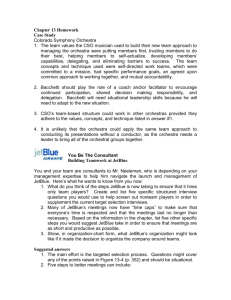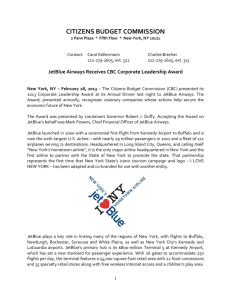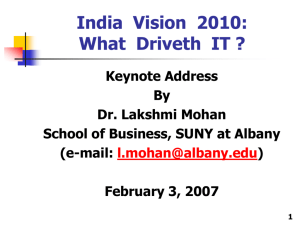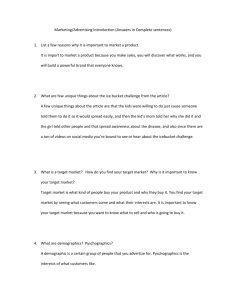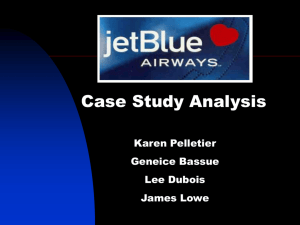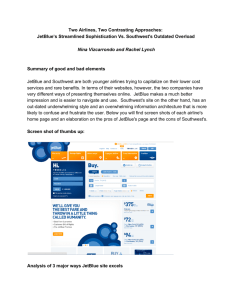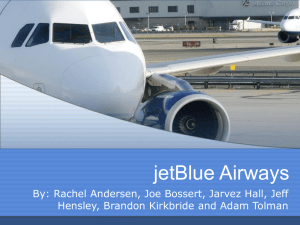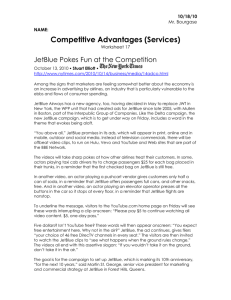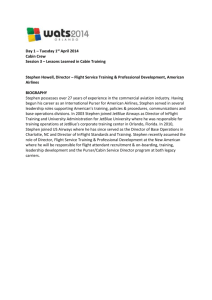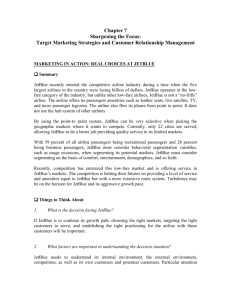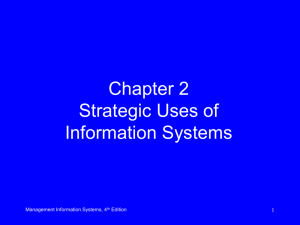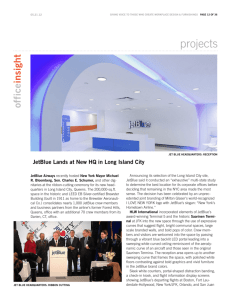Homework #1.doc
advertisement
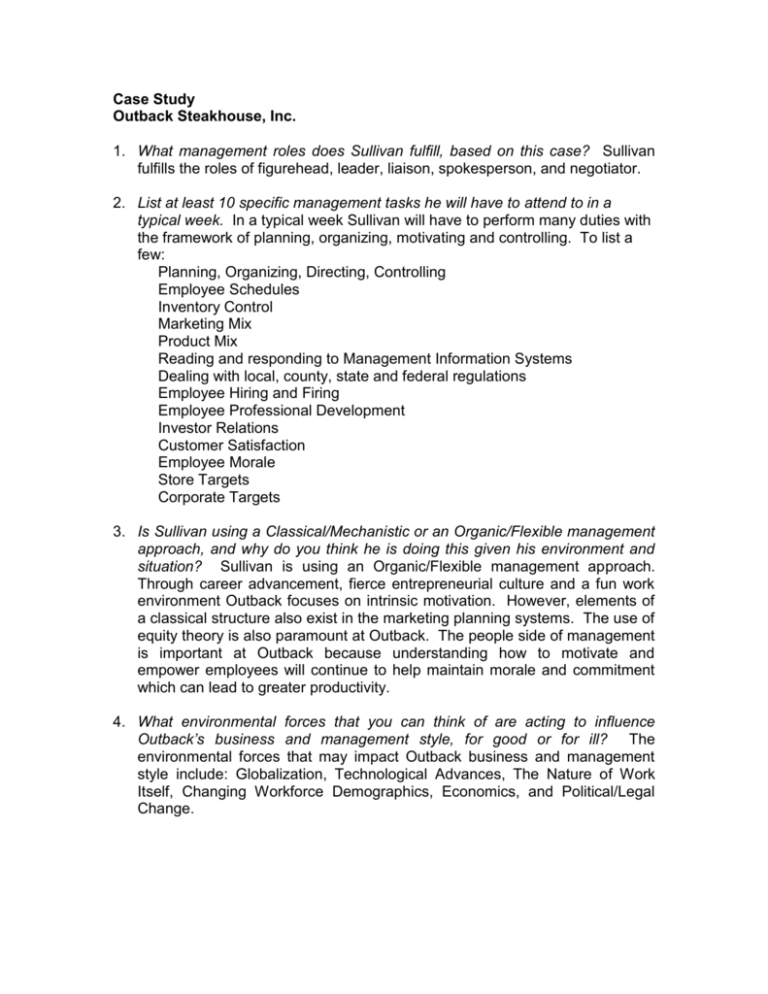
Case Study Outback Steakhouse, Inc. 1. What management roles does Sullivan fulfill, based on this case? Sullivan fulfills the roles of figurehead, leader, liaison, spokesperson, and negotiator. 2. List at least 10 specific management tasks he will have to attend to in a typical week. In a typical week Sullivan will have to perform many duties with the framework of planning, organizing, motivating and controlling. To list a few: Planning, Organizing, Directing, Controlling Employee Schedules Inventory Control Marketing Mix Product Mix Reading and responding to Management Information Systems Dealing with local, county, state and federal regulations Employee Hiring and Firing Employee Professional Development Investor Relations Customer Satisfaction Employee Morale Store Targets Corporate Targets 3. Is Sullivan using a Classical/Mechanistic or an Organic/Flexible management approach, and why do you think he is doing this given his environment and situation? Sullivan is using an Organic/Flexible management approach. Through career advancement, fierce entrepreneurial culture and a fun work environment Outback focuses on intrinsic motivation. However, elements of a classical structure also exist in the marketing planning systems. The use of equity theory is also paramount at Outback. The people side of management is important at Outback because understanding how to motivate and empower employees will continue to help maintain morale and commitment which can lead to greater productivity. 4. What environmental forces that you can think of are acting to influence Outback’s business and management style, for good or for ill? The environmental forces that may impact Outback business and management style include: Globalization, Technological Advances, The Nature of Work Itself, Changing Workforce Demographics, Economics, and Political/Legal Change. You Be the Consultant JetBlue is Airborne You and your team are consultants to Mr. Neeleman, who is depending on your management expertise to help him navigate the launch and management of JetBlue. Here’s what he wants to know from you now: 1. I have the money we need to start the airline but no organization of any kind at this point. What ten specific management tasks am I going to have to attend to during the next 12 months? 2. “He who neglects the past is doomed to repeat it.” I’m a bit of a management history buff. List and briefly describe five things I can learn from a study of the evolution of management thought that can help me create JetBlue. 3. List and briefly describe five environmental forces that are influencing my business. 4. List three specific reasons why I should use a classical/mechanistic, or organic/flexible management approach, given JetBlue’s situation. (Hint: Fill in a chart similar to Table 1.2). Suggested answers 1. List of tasks with specific examples for the launch of JetBlue. (a) Forming the Board of Directors (b) Develop Mission and Objectives (c) Hire Top Management (d) Develop the Organizational Structure, Rules and Procedures (e) Hire Balance of Employees and perform job analysis (f) Create Marketing Plan and forecast market demand (g) Develop Competitive Marketing Mix (h) Institute Financial Management and Control Systems (i) Institute Information Systems and Process Control (j) Motivate Workforce, maintain corporate culture (k) Meet or Exceed Investor Goals and Stay Solvent 2. (a)The importance of quality versus quantity: Scientific Management practices of the early 20th Century versus the Total Quality Management movement of the 1990s. (b) Viewing work as a social need is shown to us from the Hawthorne Studies of the 1920s. This helps us tremendously with motivation at JetBlue. (c) How a learning organization (Senge) can create a climate of trust, empowerment and quality. (d) How situational leadership (Hersey, Blanchard) can motivate a workforce (e) Why a flat organizational structure (Max Weber) may work best for Jet Blue 3. The five environmental forces that will impact JetBlue in the future include: Globalization, Technology, Social/Culture patterns in work, Demographic Change in the workforce, and Economics. 4. Given JetBlue’s situation an organic/flexible management approach is suggested, here are a list of reasons for that suggestion: Rapid changes in technological innovation Team-based, boundaryless organizations Employee empowerment Flatter organizations Work-teams rather than specialized functions Changing bases of power Knowledge-based organizations Stress on vision and values Managers as change agents Emphasis on leadership Need to blend people and technology more effectively into a better sociotechnical work system
